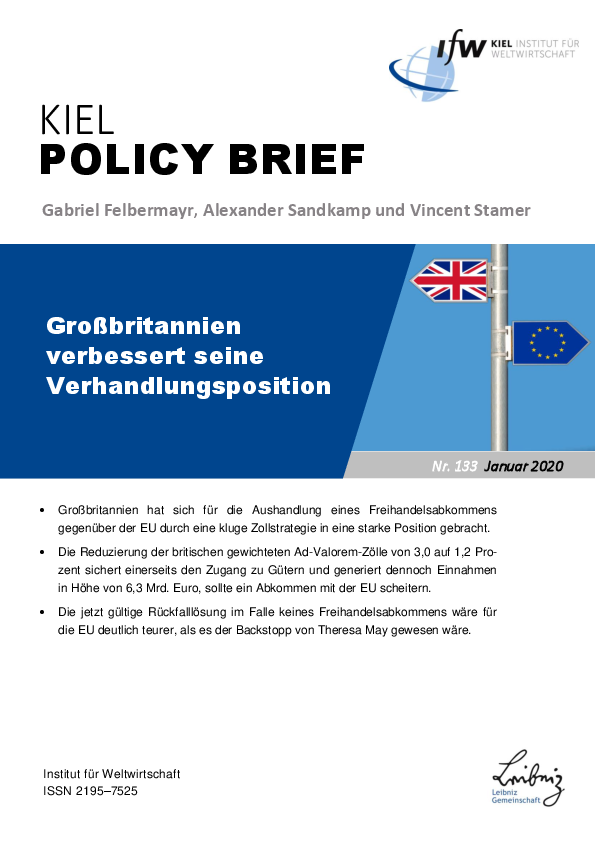Policy Article
The United Kingdom Improves its Negotiation Position (in German)
Authors
Publication Date
Key Words
Related Topics
Europe
Germany
European Union & Euro
International Trade
With the announced withdrawal of the United Kingdom from the European Union on January 31, 2020, uncertainty about future trade relations remains. During the transition phase from the date of withdrawal, the United Kingdom will remain in the European single market and thus in a customs union with the EU, but the partners will have to negotiate a free trade agreement in the shortest possible time. Without an agreement, a customs border between the EU and the United Kingdom would be created. The authors show that a new customs regime gives the United Kingdom a strong negotiating position vis-à-vis the EU: the reduction of weighted ad valorem customs duties from 3.0 percent to 1.2 percent secures access to goods on the one hand, but on the other hand it generates revenues of EUR 6.3 bn if an agreement with the EU fails. So far, the EU has collected 80 percent of the customs duties on British imports, but this revenue will be lost in any case. The planned Northern Ireland solution could lead to additional costs.








